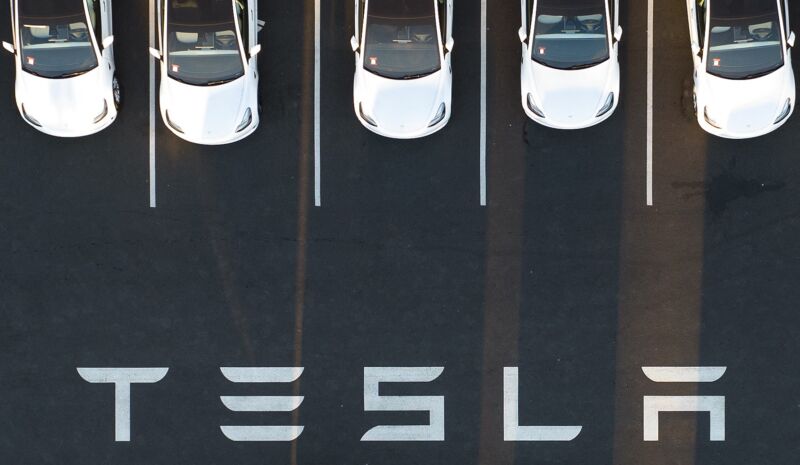
Tesla is trying to use a free speech argument to defeat a complaint that it falsely advertised "Autopilot" as an autonomous vehicle system. In response to the California Department of Motor Vehicles allegation about Autopilot, Tesla claims the state laws cited by the DMV violate the US Constitution's First Amendment.
The DMV's July 2022 complaint alleges that Tesla falsely advertises its Autopilot-enabled cars as operating autonomously and seeks a suspension or revocation of Tesla's manufacturer license.
Tesla's response, which was filed last week and published yesterday in a story by The Register, says that several California statutes and regulations cited by the DMV "are unconstitutional under the First Amendment to the United States Constitution and Article I, Section 2, of the California Constitution, as they impermissibly restrict Tesla's truthful and nonmisleading speech about its vehicles and their features."
One of the state laws that Tesla complains about is Cal. Veh. Code § 24011.5, which says that companies "shall not name any partial driving automation feature, or describe any partial driving automation feature in marketing materials, using language that implies or would otherwise lead a reasonable person to believe, that the feature allows the vehicle to function as an autonomous vehicle."
Tesla: Law “invalid under the First Amendment”
That California law, according to Tesla, "is facially invalid under the First Amendment to the United States Constitution" and the state Constitution because "a substantial number of the statute's applications impermissibly restrict constitutionally protected speech that is truthful and nonmisleading."
Despite Tesla's free speech claim, the US and state governments can enforce laws banning deceptive practices that harm consumers. "Beyond the category of common-law fraud, the Supreme Court has also said that false or misleading commercial speech may be prohibited," a Congressional Research Service report last year stated. "For constitutional purposes, commercial speech is speech that does no more than propose a commercial transaction or that relates solely to the speaker's and audience's economic interests. Accordingly, the Federal Trade Commission (FTC) and the Federal Communications Commission (FCC) can regulate deceptive commercial speech without violating the First Amendment."
The California DMV's 2022 complaint, alleging deceptive practices that violate state law, said that Tesla "made or disseminated statements that are untrue or misleading, and not based on facts, in advertising vehicles as equipped, or potentially equipped, with advanced driver assistance system (ADAS) features... Instead of simply identifying product or brand names, these 'Autopilot' and 'Full Self-Driving Capability' labels and descriptions represent that vehicles equipped with the ADAS features will operate as an autonomous vehicle, but vehicles equipped with those ADAS features could not at the time of those advertisements, and cannot now, operate as autonomous vehicles."
The agency argued that a Tesla disclaimer, which says the "features require active driver supervision and do not make the vehicle autonomous," is not enough to make the advertising truthful. The "disclaimer contradicts the original untrue or misleading labels and claims, which is misleading, and does not cure the violation," the DMV said.
Read Again https://news.google.com/rss/articles/CBMidWh0dHBzOi8vYXJzdGVjaG5pY2EuY29tL3RlY2gtcG9saWN5LzIwMjMvMTIvdGVzbGEtZmlnaHRzLWF1dG9waWxvdC1mYWxzZS1hZHZlcnRpc2luZy1jbGFpbS13aXRoLWZyZWUtc3BlZWNoLWFyZ3VtZW50L9IBAA?oc=5Bagikan Berita Ini















0 Response to "Tesla claims California false-advertising law violates First Amendment - Ars Technica"
Post a Comment